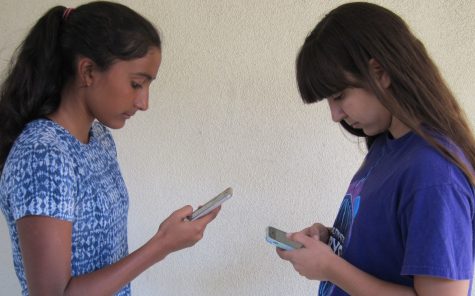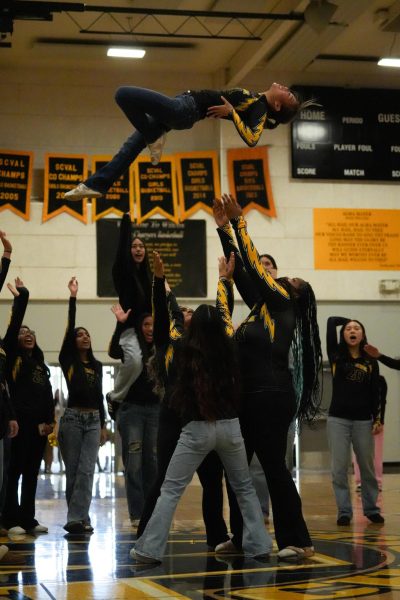Is Social Media Taking Over Our Social Skills?

Social media takes up a lot of our everyday lives, but almost no one truly understands the impacts it has on us. In this day and age, many people use social media to communicate, but studies show that social media may have a negative impact on our social skills. According to a 2010 Kaiser Family Foundation study, “teens spend more than seven and a half hours a day consuming media — watching TV, listening to music, surfing the Web, social networking, and playing video games.”
This study was conducted over six years ago, and since then, the popularity of social media has skyrocketed. According to Statista, the percent of Americans with a social media profile has risen from 24 percent in 2008 to 78 percent in 2016. With the growing popularity of Instagram and Snapchat, billions of people now use social media daily.
With all the social media sites that exist, it is easy to contact friends online. Teens are starting to spend more time texting rather than talking face to face. While it is convenient to text, we are starting to grow too dependent on these devices. Social media can lure users to spend more time interacting digitally, but we have to remember that face to face interaction is beneficial. Studies show that social media can cause social anxiety and loneliness along with other issues. Ashley Wen, a Wilcox freshman who does not use much social media, says, “In a sense, social media users can be more confident in social situations, but when people see others posting pictures of them doing stuff, it can also cause social anxiety.” While social media makes some more confident, it makes others more self-conscious. As someone who frequently uses social media, I can definitely understand the social anxiety aspect as seeing others’ posts can cause people to feel lonelier or make them feel like they are missing out. As teens, we tend to rely on social media a lot because everything is more convenient online, but relying too much on the internet does not always have a positive outcome. Social anxiety may be caused by being on social media too frequently for some teens, but for others it makes them more uneasy when they are not online, hence how technological dependency may be negative. This can cause teens to want to check social media rather than have face to face interaction. According to the University of Chicago, social media is “more addictive” than cigarettes, and it is astounding how the dependency of social media has come this far.
Additionally, a substantial aspect of social skills includes “social cues” that we learn developmentally as children. These cues include nonverbal interactions like “facial expressions, eye contact, tone of voice as well as posture, space between individuals,” as stated by experts Sherman, Michikyan and Greenfield. It is difficult to recognize expressions over online chats and the more time we spend on the internet, the worse our social skills are, limiting our general social capacity. Social skills are obtained by observing others and learning how to act in social situations and these cues help build stronger relationships between two individuals and reduce social anxiety.
Although social media is a convenient way to learn about everyone’s lives and is fun to use, too much time spent on social media can be quite negative.
Social skills are vital for communication, but social media may be taking over these necessary skills. It is important that we make sure we are not too invested in our internet lives. face to face interaction with friends instead of only talking over text is still very important.
As addicting as social media is, remember that you are the one in control, not your social media accounts.





